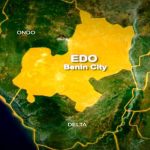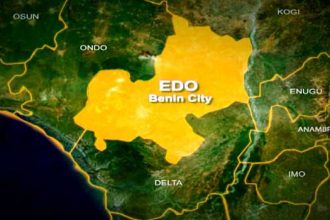The recent spate of defections from opposition parties into the All Progressives Congress may appear to boost the ruling party’s numerical strength, but analysts warn it could signal internal discord and political instability.
According to political observers, these moves are largely driven by personal ambition rather than ideological alignment and risk igniting fierce power tussles within the party.
Critics caution that the influx of former opposition figures—many of whom were recently vocal critics of the APC—could blur the party’s identity, creating confusion among its loyal base. This growing trend may also dilute the APC’s ideological foundation, with critics arguing it undermines credibility and marginalizes long-time members in favour of opportunistic newcomers.
The ideological inconsistency could alienate voters who expect principled leadership and party coherence, according to NaijaNews.
In this context, the APC may find its internal cohesion increasingly strained, despite an outward appearance of political consolidation.
In an exclusive interview with Naija News, political analyst Jide Ojo explained that many governors switching allegiance to the APC are primarily motivated by the pursuit of a second term in office.
“Politics is a game of interest. There is no permanent friendship with anything. And when you see all those governors defecting to the APC, they are seeking reelection. Sheriff Oborevwori is seeking election in Delta State, and he saw that he may not be able to get a second term unless he joins the APC,” Ojo said.
He warned of potential friction within the party, adding, “But the problem that will come out of it now is that those who have been there within the party, people like Omo-Agege, Festus Keyamo. He is now their leader. So when the party primary comes, he would want to determine who gets what, when and how. He would want to determine who will go to the House of Representatives, who will go to the State Assembly, and they will remind him when did you joined this party? You met us here.”
According to Ojo, the cycle is likely to repeat itself: “Many of them will now return to the PDP. The same thing will happen in every state.”
He further noted that similar shifts have occurred in the past, stating, “You know, in the past, journalists would describe some states as PDP, APC, ANPP, and APGA states. If Soludo sees that he will not get a second term, he can decide to join the APC. You will now see that it is not based on any ideology or principle. All of them that are looking for a ticket, because mainly that is the dominating factor… Only a few are there because of an appointment or contract. The contract cannot go around everybody. Appointments should go around everybody. But when you go because you want a ticket, by the time you don’t get that ticket, what happens? You move,” he added.
Ojo also asserted that Nigeria is already functioning as a de facto one-party state. “Let’s not deceive ourselves, we are now a de facto one-party state. That is why I sent you my article earlier. I tried to explain it… What do you mean by we are one one-party state? What is a two-party state? We have de facto and de jure one-party and two-party states and multi-party states.”
He elaborated, “And when you say the U.S. is a two-party state, it doesn’t mean that only two political parties exist there. It doesn’t mean that there are only two political parties in the UK or in Ghana. In Ghana, there are about 15 political parties. But there are two dominant ones. And so in Nigeria, for a brief period, we have the two major parties till 2019. But from 2023, it has become a one-party state because you can see how all the opposition parties are defecting more or less to the APC. So, a de facto one-party state but a de jure multi-party state,” he said.
Ojo warned that the current trajectory could lead to a political implosion within the APC before the 2027 elections. “There will be an implosion before 2027. There will be an implosion in APC; that one is predictable; you don’t have to be a soothsayer or be a Nostradamus,” he stated.
He cited the danger of new entrants clashing with entrenched power structures, saying, “Legally speaking, Nigeria is a de jure multiparty democracy but a de facto one-party state. Given the mass defection of elected governors, federal and state lawmakers from opposition political parties into the All Progressives Congress, Nigeria is now a de facto one-party state because the remaining 18 are too weak to pose a serious electoral challenge to the dominant APC.”
Ojo drew parallels to past political dominance, noting, “This was the scenario that played out in this country between 1999 and 2015, when the Peoples Democratic Party held sway at the centre. The popular cliché then was PDP and others. When this reference was being made, Nigeria moved from three registered political parties to having 91 registered parties by 2011, before many of them were deregistered by INEC after the 2011 General Election, and 74 were left to contest the 2015 general election.”
He continued, “Further deregistration by INEC, by the powers conferred on the commission by Section 225A of the Nigerian Constitution, has led to a manageable 19 that we currently have now.”
Highlighting international examples, Ojo noted: “It is important to note that countries that are presumed to have a two-party system, such as Ghana, the UK and the US, are actually multiparty democracies. In the US, there are dozens of political parties. The two dominant parties are the Republican Party and the Democratic Party. Other parties, often generally termed ‘third parties’, in the US include the Green Party, Libertarians, the Constitution Party and the Natural Law Party.”
He added, “In the United Kingdom, the dominant political parties are the Conservative and Labour Parties. However, according to the BBC, there are several different parties in the UK, each with different ideas and policies. The largest parties include the Liberal Democrats, the United Kingdom Independence Party, the Green Party, the Scottish National Party, Plaid Cymru in Wales, and the DUP and Sinn Féin in Northern Ireland. In Ghana, the Electoral Commission indicated that there are 15 parties registered at the time of the 2024 general election. However, the dominant parties are the National Democratic Congress and the New Patriotic Party.”
Ojo emphasized the looming threat of internal strife in the APC, driven by conflicts between long-standing members and recent defectors. “The new entrants may want to determine what happens within the party, while those who have been there will say no, we have been here before you, you cannot come and dictate to us,” he said.
Meanwhile, these internal tensions could spill into the public sphere, projecting an image of disunity. While defections may temporarily inflate the APC’s strength, they also risk fracturing the party from within as competing interests jostle for dominance.











